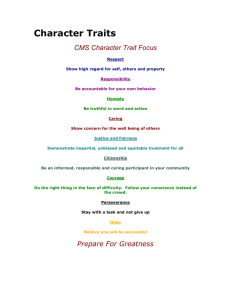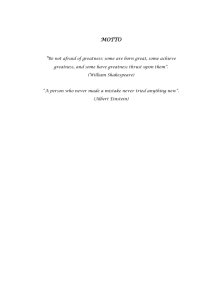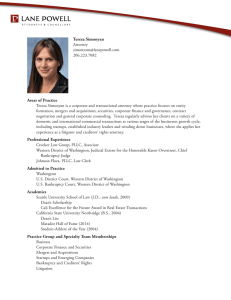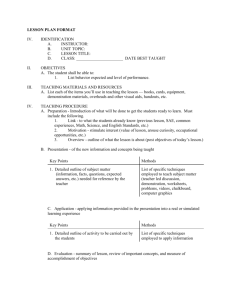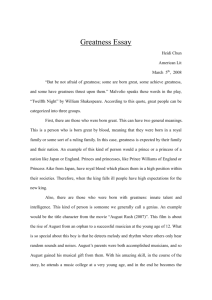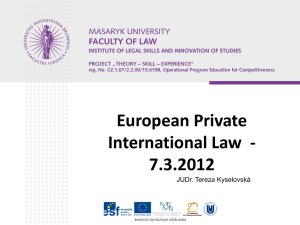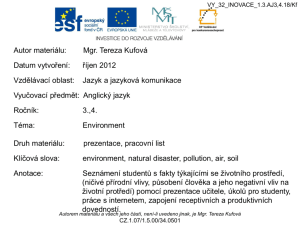Are Leaders Born or Made? Leadership Theories Explored
advertisement
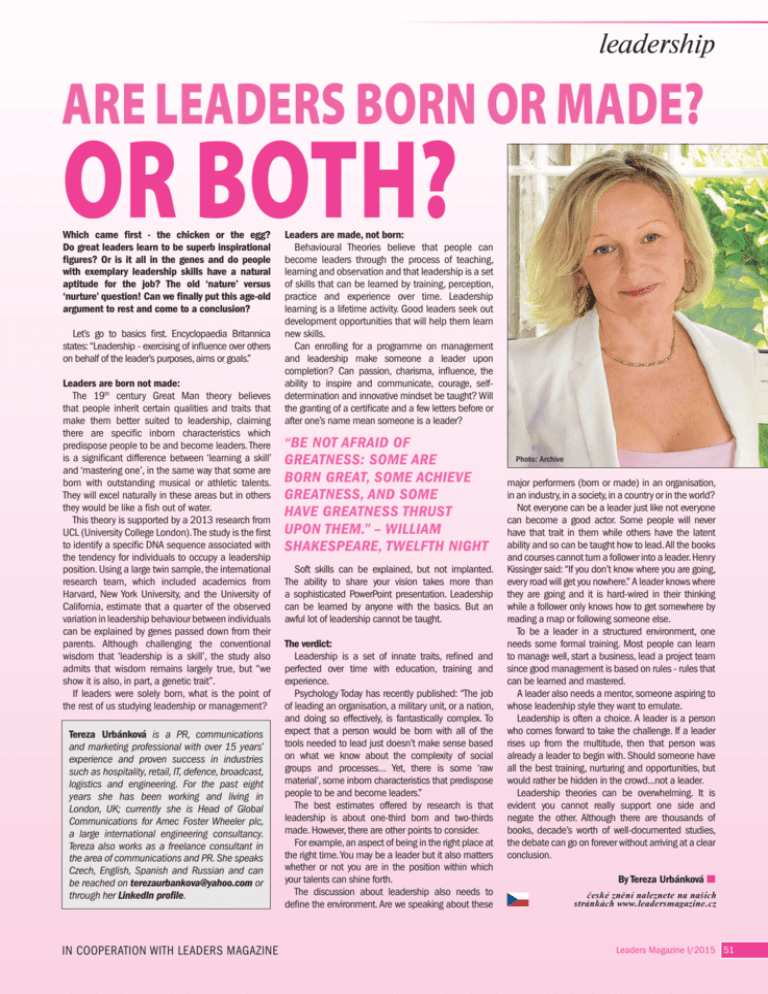
leadership ARE LEADERS BORN OR MADE? OR BOTH? Which came first - the chicken or the egg? Do great leaders learn to be superb inspirational figures? Or is it all in the genes and do people with exemplary leadership skills have a natural aptitude for the job? The old ‘nature’ versus ‘nurture’ question! Can we finally put this age-old argument to rest and come to a conclusion? Let’s go to basics first. Encyclopaedia Britannica states: “Leadership - exercising of influence over others on behalf of the leader’s purposes, aims or goals.” Leaders are born not made: The 19th century Great Man theory believes that people inherit certain qualities and traits that make them better suited to leadership, claiming there are specific inborn characteristics which predispose people to be and become leaders. There is a significant difference between ‘learning a skill’ and ‘mastering one’, in the same way that some are born with outstanding musical or athletic talents. They will excel naturally in these areas but in others they would be like a fish out of water. This theory is supported by a 2013 research from UCL (University College London). The study is the first to identify a specific DNA sequence associated with the tendency for individuals to occupy a leadership position. Using a large twin sample, the international research team, which included academics from Harvard, New York University, and the University of California, estimate that a quarter of the observed variation in leadership behaviour between individuals can be explained by genes passed down from their parents. Although challenging the conventional wisdom that ‘leadership is a skill’, the study also admits that wisdom remains largely true, but “we show it is also, in part, a genetic trait”. If leaders were solely born, what is the point of the rest of us studying leadership or management? Tereza Urbánková is a PR, communications and marketing professional with over 15 years’ experience and proven success in industries such as hospitality, retail, IT, defence, broadcast, logistics and engineering. For the past eight years she has been working and living in London, UK; currently she is Head of Global Communications for Amec Foster Wheeler plc, a large international engineering consultancy. Tereza also works as a freelance consultant in the area of communications and PR. She speaks Czech, English, Spanish and Russian and can be reached on terezaurbankova@yahoo.com or through her LinkedIn profile. IN COOPERATION WITH LEADERS MAGAZINE Leaders are made, not born: Behavioural Theories believe that people can become leaders through the process of teaching, learning and observation and that leadership is a set of skills that can be learned by training, perception, practice and experience over time. Leadership learning is a lifetime activity. Good leaders seek out development opportunities that will help them learn new skills. Can enrolling for a programme on management and leadership make someone a leader upon completion? Can passion, charisma, influence, the ability to inspire and communicate, courage, selfdetermination and innovative mindset be taught? Will the granting of a certificate and a few letters before or after one’s name mean someone is a leader? “BE NOT AFRAID OF GREATNESS: SOME ARE BORN GREAT, SOME ACHIEVE GREATNESS, AND SOME HAVE GREATNESS THRUST UPON THEM.” – WILLIAM SHAKESPEARE, TWELFTH NIGHT Soft skills can be explained, but not implanted. The ability to share your vision takes more than a sophisticated PowerPoint presentation. Leadership can be learned by anyone with the basics. But an awful lot of leadership cannot be taught. The verdict: Leadership is a set of innate traits, refined and perfected over time with education, training and experience. Psychology Today has recently published: “The job of leading an organisation, a military unit, or a nation, and doing so effectively, is fantastically complex. To expect that a person would be born with all of the tools needed to lead just doesn’t make sense based on what we know about the complexity of social groups and processes… Yet, there is some ‘raw material’, some inborn characteristics that predispose people to be and become leaders.” The best estimates offered by research is that leadership is about one-third born and two-thirds made. However, there are other points to consider. For example, an aspect of being in the right place at the right time. You may be a leader but it also matters whether or not you are in the position within which your talents can shine forth. The discussion about leadership also needs to define the environment. Are we speaking about these Photo: Archive major performers (born or made) in an organisation, in an industry, in a society, in a country or in the world? Not everyone can be a leader just like not everyone can become a good actor. Some people will never have that trait in them while others have the latent ability and so can be taught how to lead. All the books and courses cannot turn a follower into a leader. Henry Kissinger said: “If you don’t know where you are going, every road will get you nowhere.” A leader knows where they are going and it is hard-wired in their thinking while a follower only knows how to get somewhere by reading a map or following someone else. To be a leader in a structured environment, one needs some formal training. Most people can learn to manage well, start a business, lead a project team since good management is based on rules - rules that can be learned and mastered. A leader also needs a mentor, someone aspiring to whose leadership style they want to emulate. Leadership is often a choice. A leader is a person who comes forward to take the challenge. If a leader rises up from the multitude, then that person was already a leader to begin with. Should someone have all the best training, nurturing and opportunities, but would rather be hidden in the crowd...not a leader. Leadership theories can be overwhelming. It is evident you cannot really support one side and negate the other. Although there are thousands of books, decade’s worth of well-documented studies, the debate can go on forever without arriving at a clear conclusion. By Tereza Urbánková české znění naleznete na našich stránkách www.leadersmagazine.cz Leaders Magazine I/2015 51
